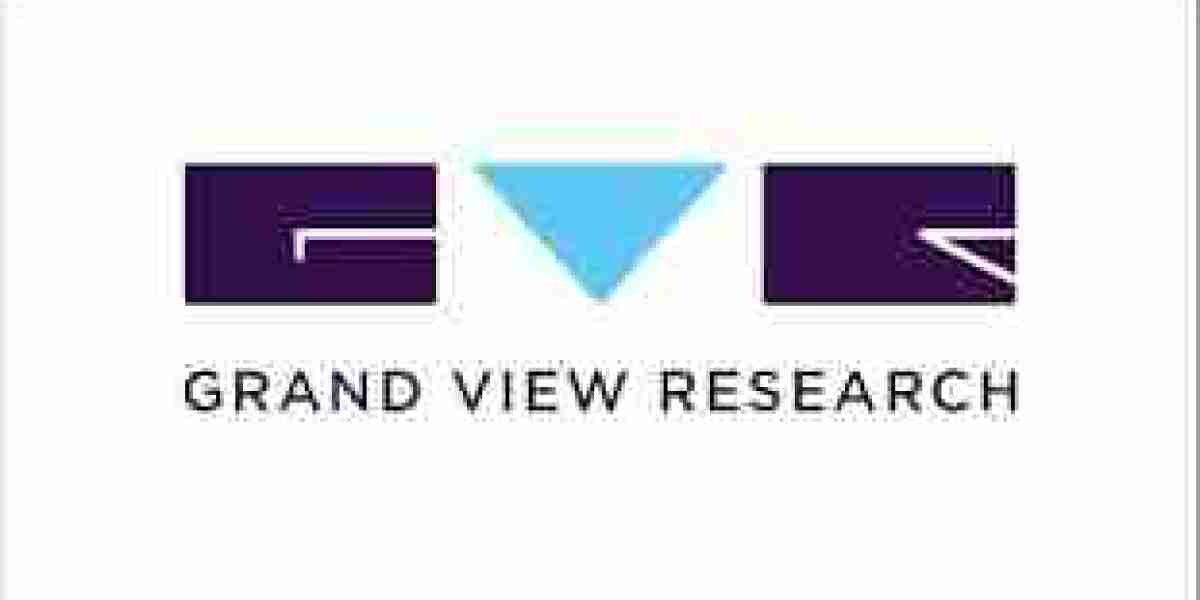The global proteomics market was valued at USD 24.29 billion in 2023 and is projected to grow at a compound annual growth rate (CAGR) of 13.10% from 2024 to 2030. This robust growth is driven by several key factors, including the rising prevalence of chronic and infectious diseases, the increasing demand for advanced diagnostic solutions for targeted disease treatment, and the growing need for personalized medicine. Additionally, technological advancements in protein analysis are further fueling the market's expansion, providing more precise tools for disease diagnosis and therapy.
Factors Driving Market Growth:
One of the primary drivers of the proteomics market is the increasing prevalence of chronic and infectious diseases worldwide. The World Health Organization (WHO) projects that the number of new cancer cases will rise to over 35 million by 2050, a 77% increase from the approximately 20 million cases anticipated in 2022. This surge in disease prevalence is spurring greater demand for pathogenesis research, as well as the development of advanced diagnostics and therapeutics. For example, a study published in Nature Communications in July 2024 highlighted how proteomics-based techniques were used to identify effectors secreted by Rickettsia spp., advancing our understanding of the host-pathogen interface.
Additionally, proteomics is playing a significant role in aging research. A study published in August 2024 in Nature Medicine introduced a proteomic aging clock, which uses plasma proteins to measure an individual's biological age. This tool can predict the risk of age-related diseases, multimorbidity, and even mortality across different populations. Emerging technologies like top-down proteomics are also enhancing our understanding of how proteoforms—distinct variations of proteins—contribute to disease mechanisms and precision medicine, helping to bridge the gap between genotypes (genetic makeup) and phenotypes (observable traits).
Gather more insights about the market drivers, restrains and growth of the Proteomics Market
Regional Insights:
The global market for proteomics is experiencing strong growth across all regions, with significant contributions from North America, Europe, and the rapidly expanding Asia Pacific market.
North America:
In 2023, North America dominated the proteomics market, accounting for 45.97% of the total revenue share. This dominance can be attributed to the region’s advanced technological infrastructure, strong demand for disease diagnostics, and extensive research and development (R&D) investments, particularly in the fields of precision medicine and biotechnology. The presence of highly advanced healthcare facilities and substantial government funding for biotechnology and healthcare research further supports market growth in the region.
United States:
The U.S. proteomics market is expected to grow steadily throughout the forecast period, driven by its robust R&D landscape in biotechnology and life sciences. The U.S. is a leader in mass spectrometry technology, which has widespread applications in medicine, biotechnology research, and pharmaceutical development. Additionally, the presence of key players in the industry contributes to ongoing innovations, advancing proteomics research and its application in drug discovery, diagnostics, and personalized medicine.
Europe:
Europe is expected to experience significant growth in the proteomics market from 2024 to 2030, supported by a strong biotechnology R&D sector, an increasing focus on spatial biology research, and the presence of key industry players. Government investments, along with funding from private sources, are facilitating the expansion of proteomics research and driving the commercialization of proteomics products across the region.
United Kingdom:
The UK is poised for notable growth in the proteomics market due to advancements in mass spectrometry and its applications in a variety of fields, including oncology, neurology, immunology, pathology, and personalized medicine. The UK’s strong scientific community and healthcare infrastructure further support the adoption of proteomics technologies.
Germany:
Germany is witnessing substantial growth in the multi-omics field, which integrates proteomics with genomics, metabolomics, and other data types. The country has an active biotechnology and pharmaceutical sector, with strong support from academic institutions and government funding for proteomics-related research. For instance, the European Molecular Biology Laboratory (EMBL) in Germany hosted events in early 2024 focused on the integration and analysis of multiomics data, underscoring the country’s leadership in this area.
France:
In France, the proteomics market is expected to grow due to the increasing adoption of advanced protein analysis technologies in areas like cancer research, drug discovery, and translational research. Government funding and investments in biotechnology further support the market’s growth, positioning France as a key player in the European proteomics landscape.
Asia Pacific:
The Asia Pacific region is forecast to grow at the fastest CAGR of 15.97% from 2024 to 2030. Several factors contribute to this rapid growth, including the rising prevalence of chronic diseases, an increasing preference for outsourcing proteomics-based projects, and robust public and private funding for proteomics R&D. Additionally, favorable government regulations and the strong presence of biotechnology and biopharmaceutical companies in the region are driving market expansion.
Japan:
Japan’s proteomics market is expected to grow at a significant rate due to the country’s substantial investments in drug discovery and development, technological advancements, and the increasing focus on personalized medicine. Government policies supporting biotechnology innovation also contribute to market growth in Japan.
China:
China’s proteomics market is poised for growth, driven by the country’s focus on advancing biotechnology and therapeutics. The increasing demand for precision medicine, coupled with rising awareness of chronic diseases and the need for more effective diagnostic tools, is fueling the market’s expansion. Additionally, government investments in healthcare innovation and research are further propelling growth.
India:
India is expected to witness rapid growth in its proteomics market due to the increasing use of proteomics-based research and the growing presence of biopharmaceutical companies involved in drug discovery. Government investments in scientific research and healthcare innovation further boost the market’s expansion in the country.
Middle East and Africa:
The Middle East and Africa (MEA) region is expected to see growth in the proteomics market due to increasing demand for improved diagnostics that aid in the prevention and treatment of diseases, alongside rising government funding in biotechnology research. The region’s healthcare infrastructure development and focus on biotech innovation support market growth.
Saudi Arabia:
In Saudi Arabia, the proteomics market is expected to grow due to significant investments in biotechnology, increased research activities, and government initiatives aimed at advancing scientific research and innovation in health sciences.
Kuwait:
The proteomics market in Kuwait is anticipated to grow as the country engages in global collaborations with researchers and biotech companies. These partnerships facilitate the exchange of knowledge and access to advanced technologies, helping boost the market in Kuwait.
Browse through Grand View Research's Category Biotechnology Industry Research Reports.
- The Latin America molecular methods market for food safety testing size was valued at USD 154.6 million in 2024 and is projected to grow at a CAGR of 10.0% from 2025 to 2030.
- The global plasma fractionation market sizewas estimated at USD 35.8 billion in 2024 and is projected to grow at a CAGR of 8.5% from 2025 to 2030.
Key Proteomics Companies:
The following are the leading companies in the proteomics market. These companies collectively hold the largest market share and dictate industry trends.
- Illumina, Inc.
- Agilent Technologies, Inc.
- Bio-Rad Laboratories, Inc.
- Thermo Fisher Scientific, Inc.
- Bruker Corporation
- F. Hoffmann-La Roche Ltd.
- Waters Corporation
- Merck KGaA
- Danaher
- Standard BioTools Inc.
Order a free sample PDF of the Market Intelligence Study, published by Grand View Research.



